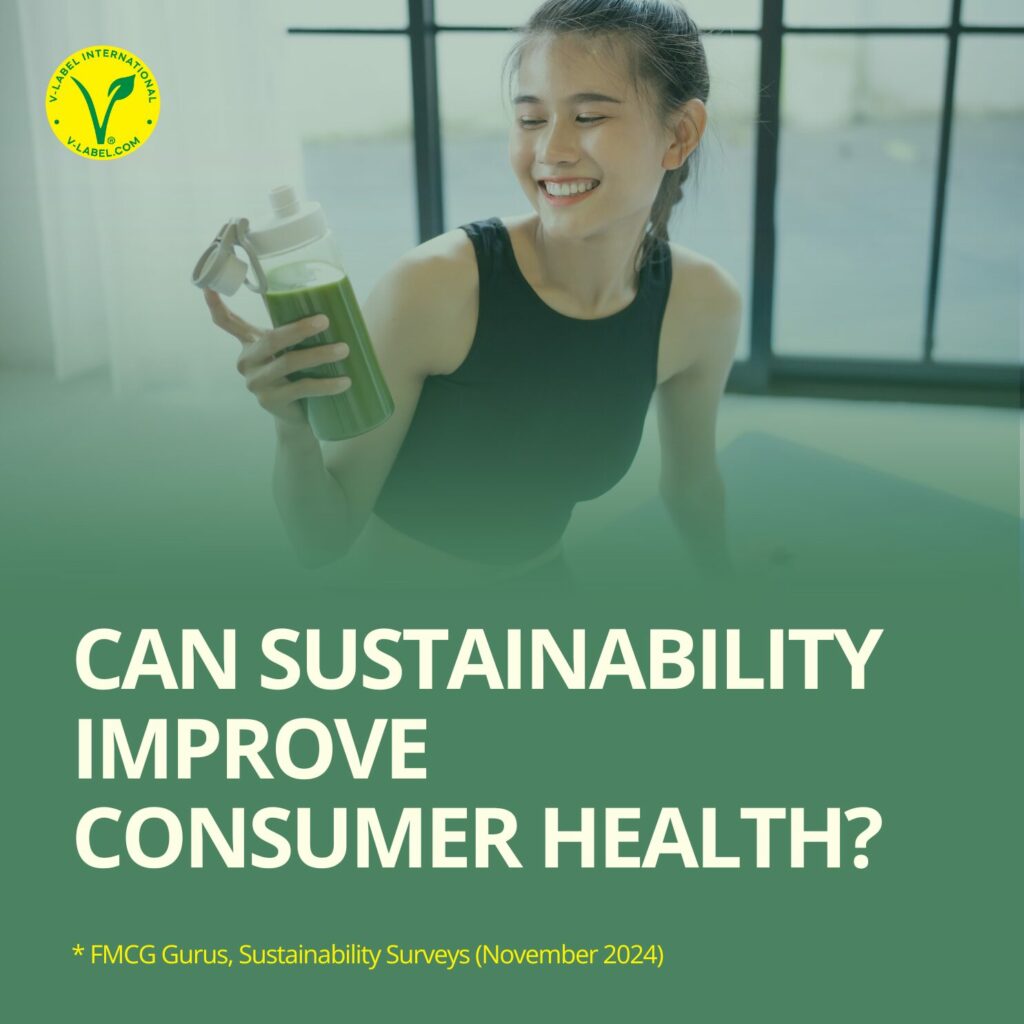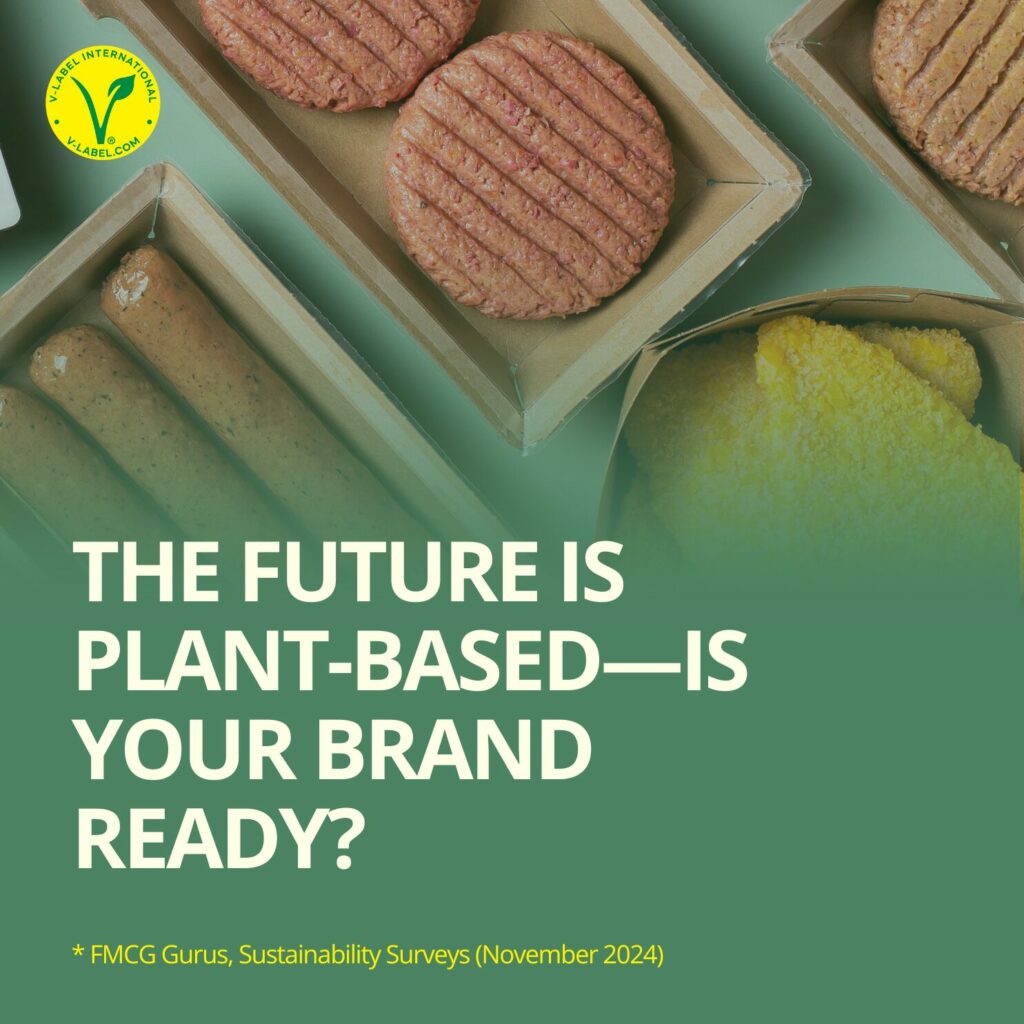Understanding Consumer Attitudes Towards Veganism and Sustainability in 2024
The global push for sustainability is reshaping the food industry, with plant-based eating gaining momentum across Europe. Veganuary, the campaign encouraging people to try a vegan diet in January, has inspired millions to explore plant-based options, driving awareness of health, environmental, and ethical benefits. Recent insights from a 13-country European survey reveal valuable opportunities for brands to align with consumer values and capitalize on this growing trend.
The global push for sustainability has never been stronger, and the food industry is at the heart of this transformation. Across Europe, consumers are increasingly aware of the environmental impact of their food choices and the benefits of reducing animal-based products. This growing consciousness is driving significant changes in dietary habits, with plant-based eating gaining mainstream traction.
One major catalyst for plant-based food is Veganuary, the global campaign encouraging people to try a vegan diet throughout January. Over the years, Veganuary has inspired millions to explore plant-based options, highlighting the health, environmental, and ethical benefits of veganism. For many, it serves as the perfect opportunity to experiment with plant-based lifestyles, making January a pivotal month for raising awareness and driving change.
This shift is supported by recent insights from a survey conducted across 13 European countries. FMCG Gurus, V-Label’s consumer insights strategy partner, examined consumer attitudes toward veganism, sustainability, and the challenges of adopting plant-based lifestyles. The findings are eye-opening, providing brands with valuable opportunities to align their strategies with consumer values and capitalize on the momentum generated by campaigns like Veganuary.
January is not just a time for resolutions but also for reflection on food choices. As more consumers embrace plant-based diets during this period, brands have a unique chance to showcase innovative products and communicate the benefits of veganism effectively.
A Shift Toward Plant-Based Diets
Over half (52.2%) of survey respondents reported changing their diet in the past two years. This figure reflects a growing awareness of the impact of dietary choices on health and the planet. Among those who made changes, the most common actions included reducing red meat consumption (29.2%), increasing plant-based meals, and exploring alternative protein sources like tofu, legumes, and meat substitutes (41.8%).
This shift isn’t just a passing trend. It’s a response to multiple factors:
- Health Concerns: Consumers are increasingly linking plant-based diets to benefits like lower cholesterol, reduced risk of chronic diseases, and improved energy levels.
- Environmental Awareness: Many understand the significant carbon footprint of animal agriculture, particularly beef and dairy, and are motivated to reduce their environmental impact.
- Ethical Considerations: Animal welfare continues to be a critical factor, with many consumers choosing vegan options to avoid supporting industries they perceive as harmful.
This presents a unique opportunity for brands. By offering plant-based alternatives that are accessible, affordable, and delicious, companies can tap into this growing market.
Sustainability and Its Broader Appeal
“Sustainability is no longer a niche concern. It’s a priority for the majority of consumers with 71.3% saying brands should do more to more to protect the planet,” says Martin Ranninger, V-Label International’s Co-Director.
Interestingly, the appeal of sustainability extends beyond environmental care. Many consumers associate sustainability with improved personal health. For example, reducing waste, consuming organic produce, and avoiding overly processed foods align with health-conscious lifestyles. This dual benefit—personal and planetary health—is driving consumer interest in plant-based options.
Brands that communicate the connection between sustainability and health can create a compelling narrative. For instance, emphasizing that plant-based diets not only reduce greenhouse gas emissions but also support a healthier lifestyle can resonate deeply with modern consumers.

Barriers to Adopting Plant-Based Lifestyles
Despite the clear interest in sustainable diets, several barriers prevent more widespread adoption:
- Limited Availability: Many consumers struggle to find diverse plant-based options in traditional grocery stores or restaurants.
- Cost Perception: Plant-based products are often viewed as more expensive, deterring budget-conscious shoppers.
- Confusion Over Labels: Terms like « vegan, » « vegetarian, » and « plant-based » are sometimes used inconsistently, leading to consumer mistrust.
- Taste Concerns: Some consumers believe that plant-based options compromise on flavor or texture.
Addressing these barriers is critical for brands. Expanding distribution, pricing products competitively, and investing in clear, transparent labeling can help overcome these challenges. Additionally, innovations in plant-based food technology—such as improving taste and replicating the texture of meat—can encourage hesitant consumers to try new options.
The Role of Brands in Driving Change
Consumers expect brands to take the lead in promoting sustainable practices. According to FMCG Gurus’ survey:
- 44.5% agree that the damage to the environment is irreversible, and many feel a sense of urgency to act.
- 69.2% want brands to educate them about sustainability.
“62% of consumers would like to see information about sustainability available on the product packaging and 44% at the point of purchase,” comments on the survey finds Martin Ranninger, V-Label International’s Co-Director. “V-Label is exactly where the majority of European consumers expect clear and transparent communication from food brands and retailers.”
This isn’t just about offering eco-friendly products; it’s about building trust and fostering a sense of partnership with consumers. Transparent marketing, authentic sustainability claims, and certifications like V-Label can enhance credibility. Partnerships with NGOs or sustainability initiatives can further demonstrate a brand’s commitment to change.
European consumers are concerned about multiple environmental impacts with global warming (61%), deforestation (60%), and carbon emission (58.4%) mentioned as leading worries. In the past two years, European consumers have taken steps to reduce their impact on the environment. This impacts food brands and retailers as well. Interestingly, consumers have stated that:
- 37.5% have chosen one product over another because it was more environmentally friendly
- 35.1% have made greater efforts to find more environmentally friendly food brands
- 26.6% have changed retailers to one that is more environmentally friendly
The Future of Food is Plant-Based

The plant-based movement is no longer confined to niche markets. It’s rapidly becoming mainstream, with major food companies and retailers introducing vegan alternatives to meet demand. Looking ahead, the growth potential is immense. Innovations in cultivated meat, plant-based seafood, and alternative dairy are creating entirely new categories. As consumers become more familiar with these options, the market will continue to evolve.
For businesses, staying ahead means anticipating these changes and responding proactively. Investing in research and development, understanding consumer needs, and aligning products with values like sustainability and health will be essential.
Actionable Steps for Brands
To thrive in this changing landscape, brands should consider the following strategies:
- Expand Accessibility: Ensure plant-based products are widely available in both urban and rural markets.
- Enhance Transparency: Use clear, consistent labeling and certifications to build consumer trust.
- Highlight Dual Benefits: Emphasize the health and environmental advantages of plant-based diets.
- Engage in Education: Develop campaigns that inform consumers about sustainability and how their choices make a difference.
- Innovate Continuously: Stay at the forefront of food innovation, exploring new ingredients and production methods.
Conclusion
The rise of veganism and sustainability reflects a broader cultural shift toward more conscious living. Consumers are not just looking for products; they’re looking for partners in their journey toward a healthier, more sustainable future. By understanding their needs, addressing barriers, and communicating effectively, brands can play a pivotal role in driving this change.
The future is plant-based—and the time to act is now.

 Argentina
Argentina Australia
Australia België (NL)
België (NL) Bosna i Hercegovina
Bosna i Hercegovina Brasil
Brasil Chile
Chile 中国
中国 Česká republika
Česká republika Colombia
Colombia Costa Rica
Costa Rica Danmark
Danmark Deutschland
Deutschland Ecuador
Ecuador España
España France
France Ελληνικά
Ελληνικά Hrvatska
Hrvatska Indonesia
Indonesia Italia
Italia Lietuvių
Lietuvių 한국어
한국어 Magyar
Magyar Lebanon (EN)
Lebanon (EN) Melayu
Melayu Mexico
Mexico Nederland
Nederland Nigeria
Nigeria Norge
Norge Österreich
Österreich Perú
Perú Polski
Polski Português
Português Română
Română Русский
Русский Slovenčina
Slovenčina Türkçe
Türkçe South Africa
South Africa Suomi
Suomi Svenska
Svenska Schweiz
Schweiz Українська
Українська الامارات العربية المتحدة
الامارات العربية المتحدة Tiếng Việt
Tiếng Việt